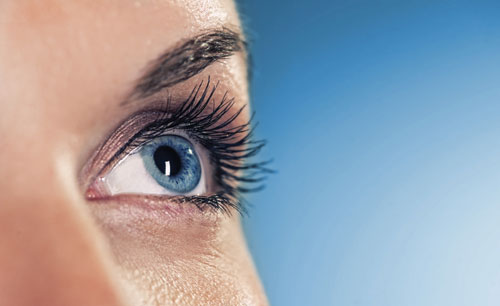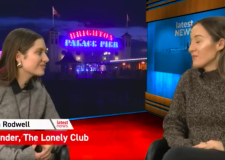Wave: laser eye surgery
Zara Baker puts the many questions surrounding laser eye surgery to Mr Pillai, medical director of Advanced Vision Care

As a glasses and contact lens wearer, all the advertisements for laser eye surgery get me thinking. Could I? Should I? How painless is the procedure really? And what should I expect during treatment and after? Mr C T Pillai is medical director of Harley Street clinic Advanced Vision Care (AVC), and a pioneering refractive surgeon with over 20 years’ experience. He kindly took the time to answer all my questions surrounding laser eye surgery.
“Your consultation is the longest part – taking approximately two hours during which time your surgeon will carry out a detailed assessment of your eyes,” Mr Pillai explains. “At AVC, the surgeon who conducts your consultation assessment will also perform your surgical procedure and all aftercare appointments to ensure complete continuity.”
“You no longer have to worry about hiding behind sunglasses for weeks afterwards”
It can be confusing if you research the subject online, as there are different types of surgery available. A proper consultation will help decide the best treatment for you. The quickest, most comfortable and most popular procedure is LASIK (Laser Insitu Keratomileusis), which involves creating a thin-hinged flap on the cornea (the front of the eye) with a precise computer controlled surgical instrument or with the latest blade-free method: Intralase.
LASEK (Laser Epithelial Keratomileusis) is a less invasive procedure. The outer layer of the cornea is placed aside using a diluted alcohol solution. Then an excimer laser is used to reshape the cornea as in the LASIK procedure. Upon completion, the epithelial layer is returned to its original position and a contact lens is placed over the cornea to aid healing for around four days.
“Treatment is quick and painless so there really is no need to be nervous – although it’s only natural that you might be, of course,” says Mr Pillai about the surgery itself. “Anaesthetic drops are put in the eyes first so, at worst, you will feel a few seconds of discomfort. You may see a flashing light and after 25 minutes treatment on both eyes will be complete.
“Recovery begins as soon as you sit up in the operating theatre – it really is that quick. Your vision may be a little hazy to start with but you will also be astounded at the clarity of your vision, even at this early stage.”
As with any procedure, we worry about the side effects. “The most common side effect of any laser treatment is dry eyes, which is temporary and normally lasts for three months. This is treated with eye drops.”
AVC offers patients some fantastic extras you won’t find at other clinics. The recently launched clear glass operating theatre means patients can bring along a friend to share the experience, which can really help to calm nerves. AVC also offers a free night’s accommodation either before or after surgery in a luxury hotel nearby for you and a friend.
“Even if you have an important occasion coming up, such as a wedding, you can still go ahead with treatment and be back to normal in time,” says Mr Pillai. “Laser eye surgery is so advanced these days that you no longer have to worry about hiding behind sunglasses for weeks afterwards.”
AVC offers a range of flexible payment plans, including 0% finance
Advanced Vision Care: 020 7935 7497, www.advancedvisioncare.co.uk
Eyesite, Brighton, 47–48 North Street, Brighton, 01273 724111, see ad below for details of their special open evening in association with AVC.





















